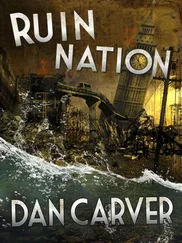Dan Singer - Start-up Nation
Здесь есть возможность читать онлайн «Dan Singer - Start-up Nation» весь текст электронной книги совершенно бесплатно (целиком полную версию без сокращений). В некоторых случаях можно слушать аудио, скачать через торрент в формате fb2 и присутствует краткое содержание. Жанр: Старинная литература, на английском языке. Описание произведения, (предисловие) а так же отзывы посетителей доступны на портале библиотеки ЛибКат.
- Название:Start-up Nation
- Автор:
- Жанр:
- Год:неизвестен
- ISBN:нет данных
- Рейтинг книги:3.5 / 5. Голосов: 2
-
Избранное:Добавить в избранное
- Отзывы:
-
Ваша оценка:
- 80
- 1
- 2
- 3
- 4
- 5
Start-up Nation: краткое содержание, описание и аннотация
Предлагаем к чтению аннотацию, описание, краткое содержание или предисловие (зависит от того, что написал сам автор книги «Start-up Nation»). Если вы не нашли необходимую информацию о книге — напишите в комментариях, мы постараемся отыскать её.
Start-up Nation — читать онлайн бесплатно полную книгу (весь текст) целиком
Ниже представлен текст книги, разбитый по страницам. Система сохранения места последней прочитанной страницы, позволяет с удобством читать онлайн бесплатно книгу «Start-up Nation», без необходимости каждый раз заново искать на чём Вы остановились. Поставьте закладку, и сможете в любой момент перейти на страницу, на которой закончили чтение.
Интервал:
Закладка:
That is the mystery this book aims to solve. Why Israel and not elsewhere?
One explanation is that adversity, like necessity, breeds inventiveness. Other small and threatened countries, such as South Korea, Singapore, and Taiwan, can also boast growth records that are as impressive as Israel’s. But none of them have produced an entrepreneurial culture—not to mention an array of start-ups—that compares with Israel’s.
Some people conjecture that there is something specifically Jewish at work. The notion that Jews are “smart” has become deeply embedded in the Western psyche. We saw this ourselves; when we told people we were writing a book about why Israel is so innovative, many reacted by saying, “It’s simple—Jews are smart, so it’s no surprise that Israel is innovative.” But pinning Israel’s success on a stereotype obscures more than it reveals.
For starters, the idea of a unitary Jewishness—whether genetic or cultural—would seem to have little applicability to a nation that, though small, is among the most heterogeneous in the world. Israel’s tiny population is made up of some seventy different nationalities. A Jewish refugee from Iraq and one from Poland or Ethiopia did not share a language, education, culture, or history—at least not for the two previous millennia. As Irish economist David McWilliams explains, “Israel is quite the opposite of a uni-dimensional, Jewish country. . . . It is a monotheistic melting pot of a diaspora that brought back with it the culture, language and customs of the four corners of the earth.” 18
While a common prayer book and a shared legacy of persecution count for something, it was far from clear that this disparate group could form a functioning country at all, let alone one that would excel at—of all things—teamwork and innovation.
Indeed, Israel’s secret seems to lie in something more than just the talent of individuals. There are lots of places with talented people, certainly with many times the number of engineers that Israel has to offer. Singaporean students, for example, lead the world in science and mathematics test scores. Multinationals have set up shop in places like India and Ireland, too. “But we don’t set up our mission critical work in those countries,” an American executive from eBay told us. “Google, Cisco, Microsoft, Intel, eBay . . . the list goes on. The best-kept secret is that we all live and die by the work of our Israeli teams. It’s much more than just outsourcing call centers to India or setting up IT services in Ireland. What we do in Israel is unlike what we do anywhere else in the world.” 19
Another commonly cited factor in Israel’s success is the country’s military and defense industry, which has produced successful spin-off companies. This is part of the answer, but it does not explain why other countries that have conscription and large militaries do not see a similar impact on their private sectors. Pointing to the military just shifts the question: What is it about the Israeli military that seems to foster entrepreneurship? And even with the influence of the military, why is it that defense, counterterrorism, and homeland security companies today represent less than 5 percent of Israel’s gross domestic product?
The answer, we contend, must be broader and deeper. It must lie in the stories of individual entrepreneurs like Shai Agassi, which are emblematic of the state itself. As we will show, it is a story not just of talent but of tenacity, of insatiable questioning of authority, of determined informality, combined with a unique attitude toward failure, teamwork, mission, risk, and cross-disciplinary creativity. Israel is replete with such stories. But Israelis themselves have been too busy building their start-ups to step back and try to stitch together how it happened and what others—governments, large companies, and start-up entrepreneurs—can learn from their experience.
It would be hard to imagine a time when understanding the story of Israel’s economic miracle could be more relevant. While the United States continues to be rated the world’s most competitive economy, there is a widespread sense that something fundamental has gone wrong.
Even before the global financial crisis that began in 2008, observers of the innovation race were sounding alarms. “India and China are a tsunami about to overwhelm us,” predicted Stanford Research Institute’s Curtis Carlson. He forecasts that America’s information technology, service, and medical-devices industries are about to be lost, costing “millions of jobs . . . like in the 1980s when the Japanese surged ahead.” The only way out, says Carlson, is “to learn the tools of innovation” and forge entirely new, knowledge-based industries in energy, biotechnology, and other science-based sectors. 20
“We are rapidly becoming the fat, complacent Detroit of nations,” says former Harvard Business School professor John Kao. “We are . . . milking aging cows on the verge of going dry . . . [and] losing our collective sense of purpose along with our fire, ambition, and determination to achieve.” 21
The economic downturn has only sharpened the focus on innovation. The financial crisis, after all, was triggered by the collapse of real estate prices, which had been inflated by reckless bank lending and cheap credit. In other words, global prosperity had rested on a speculative bubble, not on the productivity increases that economists agree are the foundation of sustainable economic growth.
According to the pioneering work of Nobel Prize winner Robert Solow, technological innovation is the ultimate source of productivity and growth. 22It’s the only proven way for economies to consistently get ahead—especially innovation born by start-up companies. Recent Census Bureau data show that most of the net employment gains in the United States between 1980 and 2005 came from firms younger than five years old. Without start-ups, the average annual net employment growth rate would actually have been negative. Economist Carl Schramm, president of the Kauffman Foundation, which analyzes entrepreneurial economics, told us that “for the United States to survive and continue its economic leadership in the world, we must see entrepreneurship as our central comparative advantage. Nothing else can give us the necessary leverage.” 23
It is true that there are many models of entrepreneurship, including microentrepreneurship (the launching of household businesses) and the establishment of small companies that fill a niche and never grow beyond it. But Israel specializes in high-growth entrepreneurship—start-ups that wind up transforming entire global industries. High-growth entrepreneurship is distinct in that it uses specialized talent—from engineers and scientists to business managers and marketers—to commercialize a radically innovative idea.
This is not to suggest that Israelis are immune from the universally high failure rate of start-ups. But Israeli culture and regulations reflect a unique attitude to failure, one that has managed to repeatedly bring failed entrepreneurs back into the system to constructively use their experience to try again, rather than leave them permanently stigmatized and marginalized.
As a recent report by the Monitor Group, a global management consulting firm, described it, “When [entrepreneurs] succeed, they revolutionize markets. When they fail, they still [keep] incumbents under constant competitive pressure and thus stimulate progress.” And the Monitor study shows that entrepreneurship is the main engine for economies to “evolve and regenerate.” 24
The question has become, as a BusinessWeek cover put it, “Can America Invent Its Way Back?” 25The magazine observed that “beneath the gloom, economists and business leaders across the political spectrum are slowly coming to an agreement: Innovation is the best—and maybe the only—way the U.S. can get out of its economic hole.”
Читать дальшеИнтервал:
Закладка:
Похожие книги на «Start-up Nation»
Представляем Вашему вниманию похожие книги на «Start-up Nation» списком для выбора. Мы отобрали схожую по названию и смыслу литературу в надежде предоставить читателям больше вариантов отыскать новые, интересные, ещё непрочитанные произведения.
Обсуждение, отзывы о книге «Start-up Nation» и просто собственные мнения читателей. Оставьте ваши комментарии, напишите, что Вы думаете о произведении, его смысле или главных героях. Укажите что конкретно понравилось, а что нет, и почему Вы так считаете.












